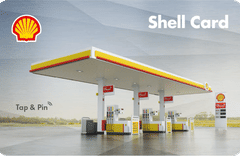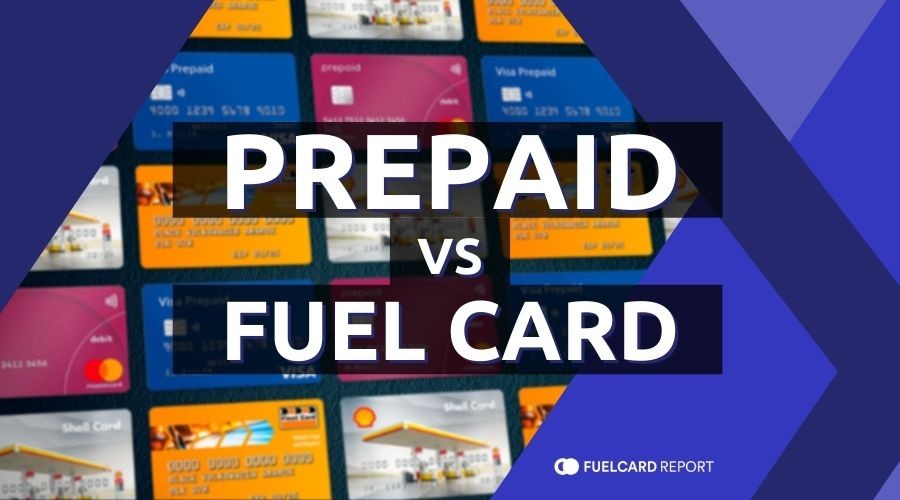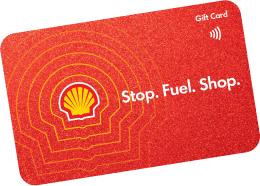As a business owner with employees who are out on the road driving multiple times a week, you probably understand some of the frustrations that come with it. From expensive fuel bills to the time-consuming nature of processing and consolidating fuel expenses come tax time (not to mention making sure employees keep their fuel receipts), there is a lot that goes into business fuel costs.
The good news is there is a solution to all your fuel woes, and that is fuel cards. We talk a lot about fuel cards of fuelcard.report (obviously) – but did you know there is also another way to pay for business fuel expenses? You’ve probably heard of it – prepaid MasterCard and Visa cards. In this article, we’re going to compare the differences between fuel cards and prepaid cards for business fuel expenses so you can determine the right choice for your business.
What is a Fuel Card?
A fuel card works like a credit card in many ways. It makes it easy to pay for and keep track of your business fuel expenses. It means your employees can pay for fuel without cash and without needing to submit a fuel reclaim. The fuel card is attached to an account and when an employee fills up, the cost is charged to that account.
The amount owing will then be deducted from your linked bank account or credit card, usually monthly.
What is a Prepaid Card?
A prepaid card – most commonly a Visa and MasterCard prepaid card – is one you load with funds from your bank account (or cash) and use to make purchases online or in-store. You can also use them to withdraw cash from ATMs.
Prepaid cards aren’t like credit cards where you borrow money which then attracts interest and needs to be paid back. Rather, they work like debit cards and can be a useful way to control your spending as you can only spend however much you’ve loaded onto the card.
What are the Benefits of a Fuel Card?
There are countless benefits that come with using fuel cards for your business fuel expenses. For example, many fuel cards offer discounts and savings on fuel, which is a great value add and very convenient. Meanwhile, every purchase is recorded and itemised on a single tax statement, so there’s no need to keep and tally-up fuel receipts.
Overall, fuel cards offer you greater control of your fuel expenses by allowing you to manage cards, create reporting systems, download statements, and check your transaction history at any time. Here are some other benefits:
- Saves you time: no more dealing with lose receipts/constant scanning of dockets
- Money savings & greater cash flow: great fuel discounts and flexible payment terms
- Transparency & flexibility: choose what drivers buy with their cards – from fuel only or fuel and in-store purchases. You can also set daily or transaction limits on the cards.
- Anti-fraud protection: protect cards with vehicle rego numbers, driver name and/or odometer reading
What are the Benefits of a Prepaid Card?
Visa and MasterCard are the two major prepaid cards which are reloadable and can be used everywhere that accepts Visa and MasterCard. You can use these two prepaid cards for all of the things you typically pay for with cash, which includes fuel.
Prepaid cards combine flexibility and affordability by allowing you to load and spend your own money, making them an ideal alternative for managing and paying for your business’s fuel expenses.
Prepaid cards can be an ideal choice for business owners who want to take charge of their business’s fuel expenses, without the some of the obstacles associated with traditional fuel cards, like needing to be in business for 12 months or longer before you apply, high monthly card fees, a limit to where you can use the fuel card and so on.
Some of the biggest benefits of a prepaid card include:
• The ability to use it anywhere
• The ability to top up your balance any time
• Lower fees and charges than credit cards
• Zero interest rates
• An ideal way to manage your spending
Why a Fuel Card Might Not be Right for You
While fuel cards are an attractive tool for most businesses, most providers require you to have an active ABN for a year or more. Also, for smaller businesses, monthly card fees might outweigh any fuel savings or benefits.
Some card providers only allow you to fill up at certain stations, so if you’re doing regional driving, you’d want a fuel card provider that gives you the ability to fill up at multiple locations.
There are plenty of fuel card providers with different offerings, so it’s important if you do choose to join a fuel card provider, you find the right one that will suit your business and its needs.
Why a Prepaid Card Might Not be Right for You
At the end of the day, prepaid cards aren’t fuel cards, and because you can’t set limits to where the card can be used, it becomes a matter of trust between you and your employees.
As a result, receipts also need to be kept when filling up at fuel stations, which can be a hassle and is one of the main benefits of a fuel card – that all transactions are tied to the card account and paper receipts aren’t necessary.
You can set transaction limits with some prepaid cards, but these limits are usually quite high.
So… Do You Choose a Fuel Card or Prepaid Card?
Choosing to pay for your business fuel expenses with a fuel card or prepaid card really comes down to your individual business and its needs. For example, if you’re just starting out as a business owner, most fuel card providers require you to have an active ABN for a year or more.
In this case, a prepaid card might be the right choice for you to pay for your fuel expenses. Meanwhile, if you’re a more established business and have many drivers out on the road, a fuel card that offers great fuel savings and other rewards would be the way to go.
What to Look for in a Fuel Card
When shopping around for a fuel card, there are a few things you need to look out for. For example, most fuel providers offer attractive upfront discounts that last for the first 6 months. Then, after the 6 months are up, monthly card fees go up, pump price discounts go down.
So, it’s important to read all the T&Cs when doing your research, or better yet talk to each fuel card provider’s sales team and ask the hard questions. Also look for where you can use the fuel card – is it limited to one brand? Or can you use it across multiple fuel brands? Another thing to look for is rewards and extras? If this is something that’s important to your business, then it’s a good idea to find a fuel card that offers a good amount of rewards and extras, whether that be Flybuys points or extra discounts at non-fuel merchants.
RELATED POST





